
I love this film!!!!!
You gotta love it when Kismet plays a part in a post, and this is a shining example of Kismet. L&S and I don't have cable T.V. (thank God), so we pretty much keep the telly tuned to our local PBS station, but Hey Kids, Let's Cook was on. I don't like to watch Hey Kids, Let's Cook because I could swear that there's something a bit "off" about Kathy (the adult cook/chef of the show), and I don't trust her around children. I'll leave it at that.
So...I flipped through our eleven other channels, and I'll be damned if this film wasn't playing on the Catholic Station. You heard me right, The Catholic Station. WTF?!? So I decided to hunt it down and post it, because Bartlbey is so-damn-weird. Paul Scofield and John McEnery are amazing in this film...and I'm still trying to figure out The Catholic tie-in, but I'm stumped. Enjoy!!!
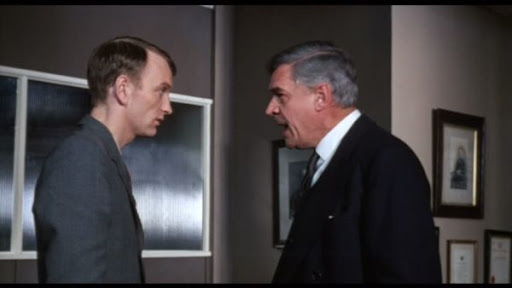
From director Anthony Friedman:
The novella, Bartleby the Scrivener, originally published in Putnam’s Magazine by Herman Melville in 1853 had always fascinated me as a peculiarly modern perception of human psychology ever since I had read it in college. Even though it was set in a world of Victorian formalities, it seemed so relevant in the 1960's when the dissent over the Vietnam war was in full swing and when social phenomenon such as hippies and drop-outs, opting out of the social contract were visible to the casual observer. Before its time, Melville’s dropout characterwho practiced passive resistance seemed very relevant to what I was seeing and meeting in the generation of youth around me. Some were just doped out and switched off. Some were deeply disturbed by the wrongs that they saw in war, in social policy. I suppose you could call it the Woodstock generation. I met people, some articulate, some not, who simply rejected the basic assumptions of the social contract that typically govern our lives. The hit movie of the late sixties was“Easy Rider”(1969) while “Hello, Dolly”(1969) and other high budget Hollywood fantasies lost money.
I had just left the London School of Film Technique the year “Easy Rider” came out. It spoke to that generation. As I contemplated what I would do after film school, I started to think about a theme, a subject, and what would be worth putting energy into. I thought about Melville’s story. It had three things going for it. It was an American classic that is widely read. It seemed to be a prophetic story about a kind of character that you could meet today. It was in the publicdomain. For those who do not understand copyright issues, this means that the movie rights in the story would not have to be bought as with a book by an author living or recently deceased. If you want to make a movie based on such a work, you have to buy the movie rights from the author or his heirs until 70 years have elapsed after his death. I had no money to buy rights. A 16mm movie had already been made in period in black and white, and with unknown actors. Since our production, two other feature film versions have been made, one in French and one in English.
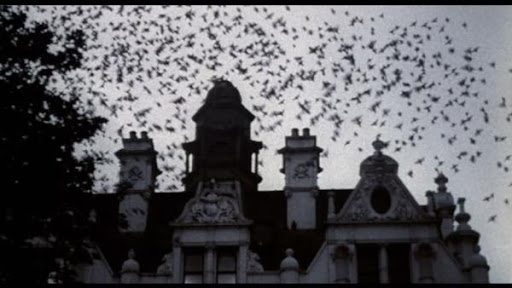
I believed in the story. I should also comment on another quality of the story that is important. It is narrated by the employer of Bartleby who is a Wall Street lawyer, and the action of the story, the situation of the story had scenes that were visual. So I invested the energy in writing a screenplay. Of course, the huge question for me or anyone wanting to adapt this story for the screen is whether to do it in the period when it was written with scriveners copying documents in lawoffices with ink pots and blotters or whether to try to recast it in a modern setting to make it more relevant to a contemporary audience. It is hard to know whether an audience would respond better to the period setting and costumes or whether the essence of the story would gain by being set in the present day. Many people who know the Melville story would be offended. When it came out, some critics like Pauline Kael of the New Yorker did not like it. Obviously, my conviction and Rod Carr-Smith’s was that the story, the situation, not the setting were critical. There was another element that struck me in the London of the time. The class distinctions, the social conventions of British business, the old buildings still had a kind of Victorian hangover. Since we were dealing with lawyers and accountants in setting up the production company and the film, it was clear to me that the modern accountant’s office had more similarity to the 1853 law office than the modern law office. Secretaries with IBM typewriters with memory typed legal documents. The closest parallel to a scrivener who copied documents was the bookkeeper or clerk in an accountant’s office who had to balance books and reconcile accounts. My own accountant thought it was exactly right after seeing the film. The problem of adaptation is a constant problem for filmmakers. Nobody likes to see the book they know changed. Very few books will translate literally tothe screen. It is interesting to see that the latest movie adaptation of this story that was released in 2002 made the same choice to modernize the setting.
While I was at film school, I met Rodney Carr-Smith. We were both older than some of our classmates. We had both switched from other careers. We were both in a hurry to get something on. I showed Rod my screenplay. He liked it and said he would like to get involved as producer. I wanted to direct. Although I had written the script, we revised it together in a number of ways. So I suggested that we should share the screen credit. We had to find lead actors and we had to find finance. Our first thoughts were about Bartleby. Who could play this character? Who would want to? Zeffirelli’s Romeo and Juliet had recently been released with John McEnery in the role of Mercutio. We approached his agent and got him to read the script. He liked it. We thought we had a good actor for the Accountant, Bartleby’s employer.
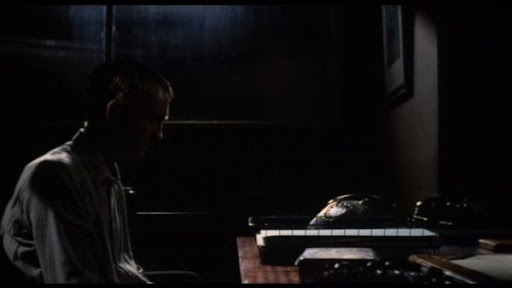
We approached the National Film Finance Corporation, a state corporation in the UK, which has since been dissolved. They liked the project partly because it was low budget and therefore could be financed out of left over monies that would not be enough to make a more ambitious film. Initially, we saw it as a television movie rather than as a feature film for theatrical release. The reason for the change was a change in casting. I had admired Paul Scofield in “A Man for All Seasons” for which he had won the Oscar. He was playing in Uncle Vanya at the Royal Court Theatre in Sloane Square. He was a dedicated actor whose interest was in the material he played not stardom. He continued to play the theatre after the Oscar. I dropped off a copy of the script at the stage door with a note inviting him to read the part of the accountant. He wrote me a note returning the script saying that it was one of the best screenplays he had read and that he would love to play the part. However, he had made a commitment to film the production of Uncle Vanya that conflicted with our production schedule and wished us luck. I think a couple of weeks later, I got a phone call. It was Paul Scofield. He explained that the film production of Uncle Vanya had fallen through and that he was free if the part was still available. It was a very exciting call to receive. We were thrilled. John McEnery who had signed to play Bartleby was also thrilled to have the chance to play opposite what most people considered England’s greatest actor. Many people thought that the film was set up on the participation of Scofield. In fact, we had a commitment from the NFFC even without Scofield. However, the project took on greater weight because this would be the first film in which Paul Scofield would appear after winning the Oscar for Best Actor for playing Sir Thomas More in A Man for All Seasons.
The budget was still very small by feature film standards. We shot the film in 4 ½ weeks based at Twickenham Studios. We went over budget and had to call in the guarantee of completion. The film was released very poorly. However, it was selected for the London Film Festival and for the San Sebastian Film Festival in 1971 where it was awarded a Special Jury Prize, reproduced on this DVD. It opened in New York in 1972 to mixed reviews in the middle of a winter blizzard and ran only two weeks. The American distributor got into a legal dispute with theBritish distributor of the time, British Lion. The film was effectively canned until all those contracts had expired.
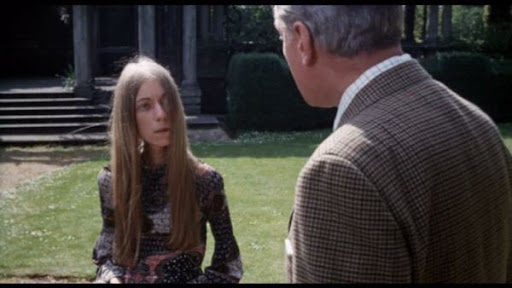
Technical Information:
Title: Bartleby
Year: 1970
Country: UK
Director: Anthony Friedman
Source: DVD5 Retail
DVD Format: NTSC
Container: .iso + mds
Size: 3.87 GB
Length: 1:18:24
Programs used: Unknown
Resolution: 720x480
Aspect Ratio: 16:9
Video: MPEG2 @ ~6800 kb/s
Frame Rate: 29.97
Audio 1: English- Dolby AC3 Stereo @ 224 kb/s
Audio 2: English- Dolby AC3 Mono @ 192 kb/s
Subtitles: None
Menu: Yes
Video: Untouched
DVD Extras:
-Still Gallery
-PDF Files of:
- Genesis of Bartleby the movie
- Bartleby, The Scrivener (A Story of Wall Street)
- Shooting Script and Release Script
- Reviews from the New York Times, New York Post and the New Yorker
- San Sebastian Film Festival, Jury Prize and Diploma
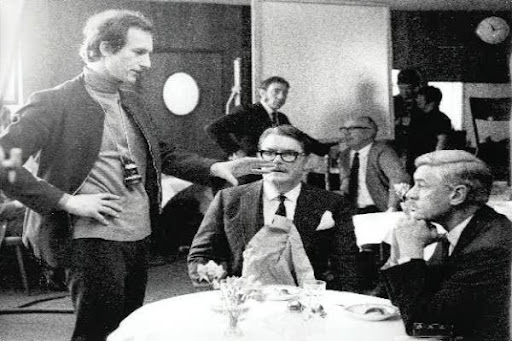
(Use JDownloader to automate downloading)
Bartleby Megaupload Links



